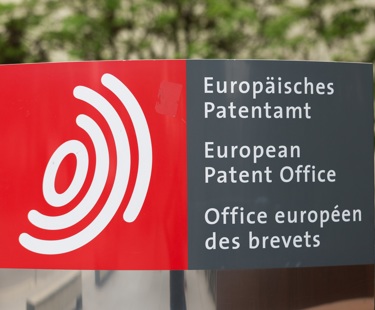Following our previous report here, the Enlarged Board of Appeal (EBA) have issued a preliminary opinion regarding whether post-filing data can be relied on when assessing inventive step.
Background
The European Patent Office (EPO) adopt the so-called “problem-solution approach” in assessing inventive step. This requires (i) determining the “closest prior art”, (ii) establishing the “objective technical problem” to be solved, which is based on the technical effect resulting from any distinguishing features of the claimed invention as compared to the closest prior art, and (iii) considering whether or not the claimed invention, starting from the closest prior art and the objective technical problem, would have been obvious to the skilled person.
The Board of Appeal in T1239/04 introduced the requirement that, for inventive step to be recognised, the patent application must at least make it plausible that the problem addressed by the invention is solved. Therefore, even if supplementary post-published evidence might also be taken into consideration, it cannot serve as the sole basis for establishing that the claimed invention solves the problem it purports to solve. However, a divergent line of case law has held that plausibility is only relevant when there are doubts from the patent application that the technical problem is solved (T1422/12, T2371/13, T31/18).
In view of this apparent disparity in the case law, the Board of T 0166/18 referred the following questions to the EBA:
1. Should an exception to the principle of free evaluation of evidence (see e.g., G1/12 reasons 31) be accepted in that the post-published data must be disregarded on the ground that the proof of the effect rests exclusively on such post-published data?
2. If the answer is yes: can post-published data be taken into consideration if based on the information in the patent application the skilled person at the relevant date would have considered the effect plausible (ab initio plausibility)?
3. If the answer to the first question is yes: can post-published data be taken into consideration if based on the information in the patent application the skilled person at the relevant date would have seen no reason to consider the effect implausible (ab initio implausibility)?
Amicus curiae briefs
Following on from the referral, the Chartered Institute of Patent Attorneys (CIPA), which is the professional and examining body for patent attorneys in the UK, submitted an amicus curiae brief in respect of this case.
CIPA adopt the viewpoint that the answer to the first question should be ‘no’, as this view is consistent with long-standing EPO practice to accept post-filing data and there should be no exception to free evaluation of evidence.
As a result of CIPA’s viewpoint in relation to question one, CIPA believe that no answer is required to questions two and three of the referral. However, CIPA have commented that they believe that any requirement for information in respect of plausibility (or lack of implausibility) should be minimal. Namely, CIPA adopt the viewpoint that it should suffice if the technical effect is ‘not completely implausible’.
Finally, CIPA also raise the point that the use of post-filing data arises in other contexts, such as sufficiency of disclosure. CIPA state that the EBA should take this into account if they establish a definition of ‘plausibility’, to ensure that the definition is uniform in the context of both inventive step and sufficiency.
Preliminary opinion of the EBA
On the 13 October 2022, the EBA issued a non-binding preliminary opinion in which they have identified issues that are considered by the Board to be of significant interest, taking into consideration the amicus curiae briefs filed by interested parties.
In view of question one of the referral, the Board have stated that the principle of free evaluation of evidence does not appear to allow evidence to be disregarded, as this would deprive the party submitting the evidence of a basic legal procedural right. This suggests that the Board may adopt a similar view to CIPA, in that the answer to the first referred question is to be ‘no’.
In contrast to the opinion of CIPA, the EBA does not consider it appropriate to extend the scope of the referred questions beyond the significance of post-published data relied upon for assessing inventive step. Therefore, the issue of post-filing data in the context of sufficiency of disclosure will not be dealt with in the decision.
The Board then goes on to provide some guidance to the issues of plausibility and implausibility raised in questions two and three. The EBA state that the technical effect relied upon needs to be encompassed by the technical teaching of the application as filed and embody the same invention. In view of this, the Board suggests that when considering the admissibility of post-filing data to support an inventive step the approach is based on the application documents and its technical teaching as to whether the skilled person would have had any significant reason to doubt it.
From this preliminary opinion, it seems that the EBA favours the ab initio implausibility standard of question three, in that post-published data should be taken into consideration if the skilled person would have no reason to consider the effect implausible. This would represent a more lenient approach to the use of post-published evidence, which may be welcome to applicants and patentees. However, it is possible that the Board may change its viewpoint following the submission of further arguments from the parties.
The hearing is due to take place on 24 November 2022, with the Board’s written decision likely to issue early to mid- 2023. We will provide further updates once the final decision has been published.
In the meantime, please contact docketing@secerna.com if you have any questions regarding this matter.


